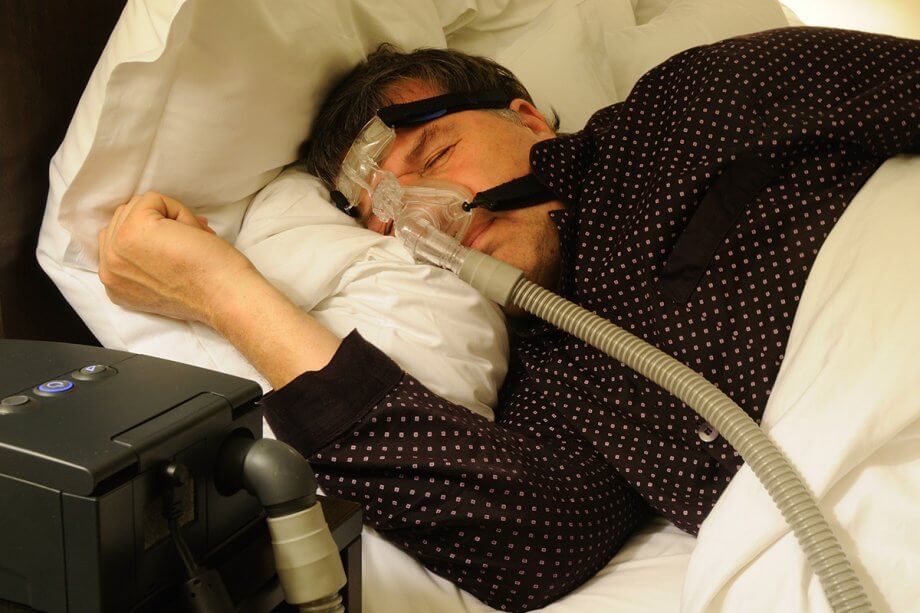Sleep apnea is a common yet dangerous medical condition that causes patients to stop breathing repeatedly during sleep. The most frequently observed type is obstructive sleep apnea, where the airway becomes blocked intermittently at night.
While obstructive sleep apnea can be challenging to diagnose and treat, your dentist and primary care physician can work together to find a solution that significantly reduces or eliminates symptoms.
About Sleep Apnea
Sleep apnea occurs when a patient starts and stops breathing during the night. These repeated interruptions in breathing patterns lower the oxygen level in the brain and blood.
Obstructive sleep apnea happens when excess tissue blocks the airway at intervals during sleep. Several factors may cause tissue to block the airway:
- Larger neck circumference
- Overweight or obesity
- Large tonsils or tongue
- Too much relaxation in the throat muscles during sleep
Symptoms of Sleep Apnea
- Loud snoring that disturbs bed partners or family members
- Observed episodes of gasping and choking at night
- Sleepiness during the day could lead to accidents while driving or operating machinery
- Memory and concentration problems
- Feeling unusually moody or irritable
- Multiple bathroom visits at night
- Morning headaches and dry mouth
- Decreased libido
Risks of Obstructive Sleep Apnea
Since obstructive sleep apnea reduces the amount of oxygen in your blood and brain, it can have far-reaching health consequences. Patients with obstructive sleep apnea are more likely to experience high blood pressure, heart disease, diabetes, stroke, dementia, and early death. In addition, patients with sleep apnea have more than double the chance of being involved in a severe motor vehicle accident.
Sleep Apnea Diagnosis
Your primary care physician and dental sleep specialist will learn about your health conditions, sleep habits, medications, lifestyle habits like alcohol and smoking, and anatomical factors like a large neck or tongue. They will want to know what symptoms you or your family observe when you sleep.
Your dentist may offer you a home sleep study, where you wear a small device at night that tracks your sleep and breathing. Many patients are more comfortable with this test than sleeping in a lab, producing more accessible results. However, a lab sleep study may be necessary to confirm the results.
Treatments for Obstructive Sleep Apnea
Lifestyle Change
Some patients with obstructive sleep apnea see symptom improvement with lifestyle changes like quitting tobacco or alcohol. Losing a portion of their body weight also helps some patients.
Oral Appliance Therapy
Your dentist can prescribe a custom-made device that comfortably holds your jaw in the correct position while you sleep. This device, also known as an occlusal splint, keeps the airway open by gently adjusting the position of the tongue and jaw.
CPAP
Many patients try a CPAP (Continuous Positive Airway Pressure) machine to keep their breathing passages open with constant air. However, many patients find these noisy and uncomfortable. Oral appliance therapy can be a viable alternative for some patients with obstructive sleep apnea.
Surgery
In severe cases where non-invasive treatments are ineffective, surgery can help patients experience symptom relief. Excess tissue removal can help patients breathe more easily.
Living With Sleep Apnea
If you have any of the symptoms described above, you may believe that you cannot do anything to stop them, but medical practitioners have several treatments available. If your partner worries that you stop breathing during the night or that you gasp, choke, and snore, schedule an appointment with your dentist or primary care physician right away. Working together, these professionals can find a way to relieve your symptoms and help you achieve restful sleep.
Frequently Asked Questions About Sleep Apnea
What happens if sleep apnea goes untreated?
If you have sleep apnea and do not receive treatment, you put your health at risk. Your heart, endocrine, and nervous systems undergo stress due to sleep apnea, and treating this condition should be a priority.
Why is it dangerous to drive if I have untreated sleep apnea?
This condition often causes sleep deprivation. Patients repeatedly wake, gasping for air, and fall into uneasy sleep. They do not receive the necessary restorative downtime, making driving and operating machinery hazardous.
Call Dental Associates
Obstructive sleep apnea can be a frightening condition, and we understand you have many questions about your diagnosis. Please call our Farmington, CT, office at 860-677-8666 to schedule an appointment with one of our expert sleep dentists today.

